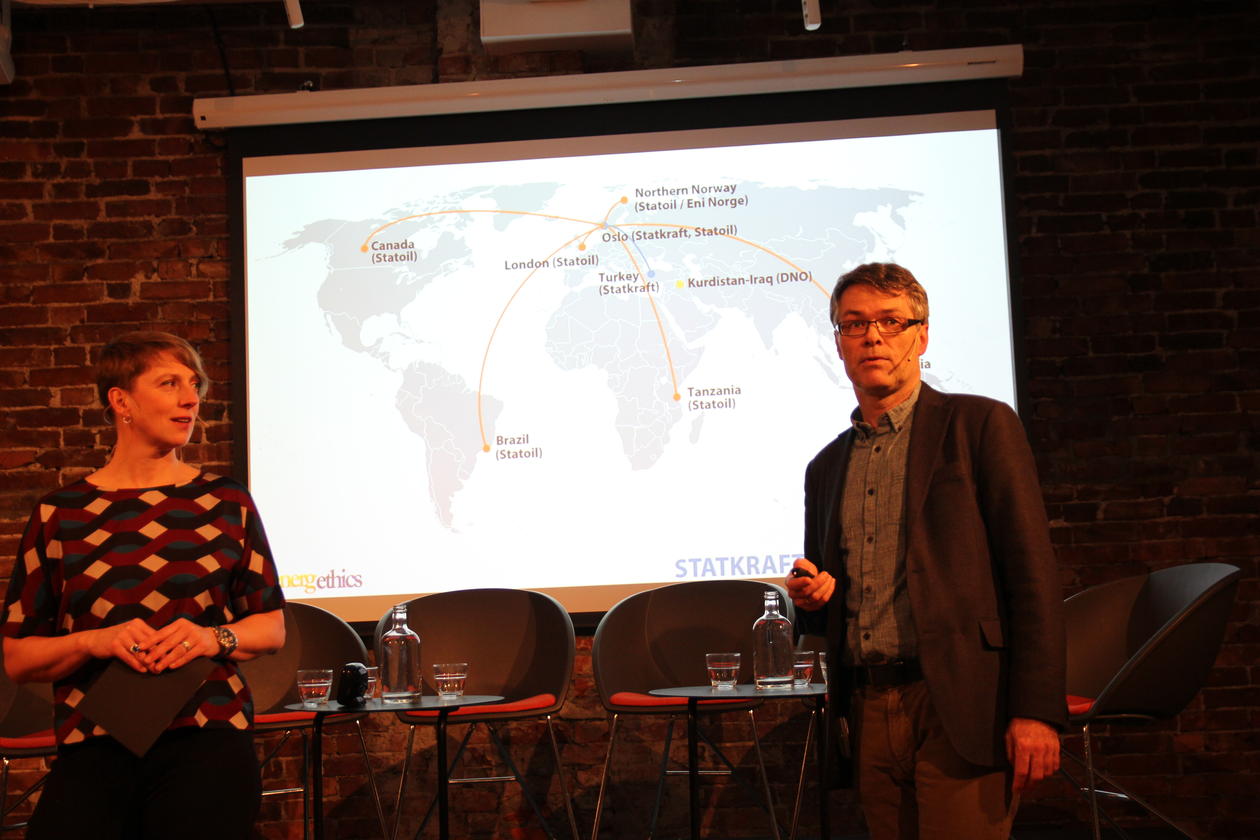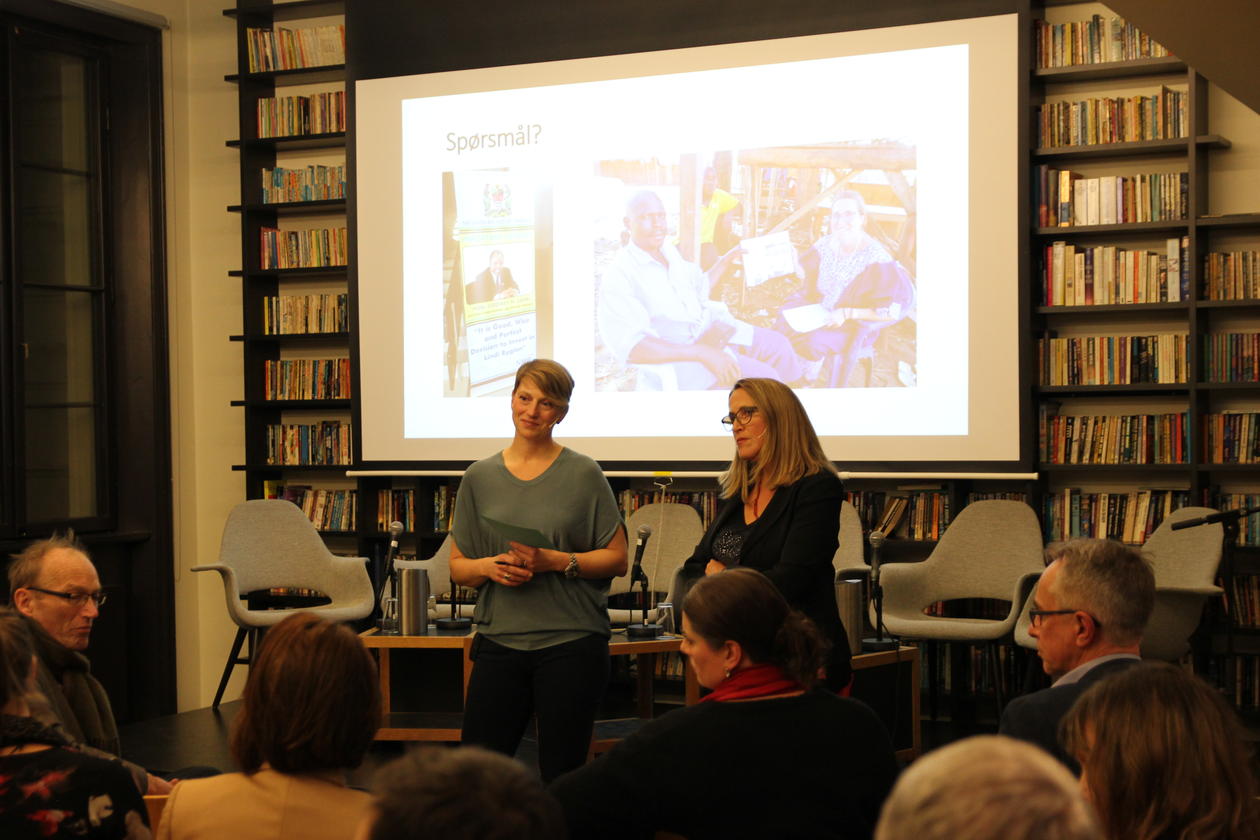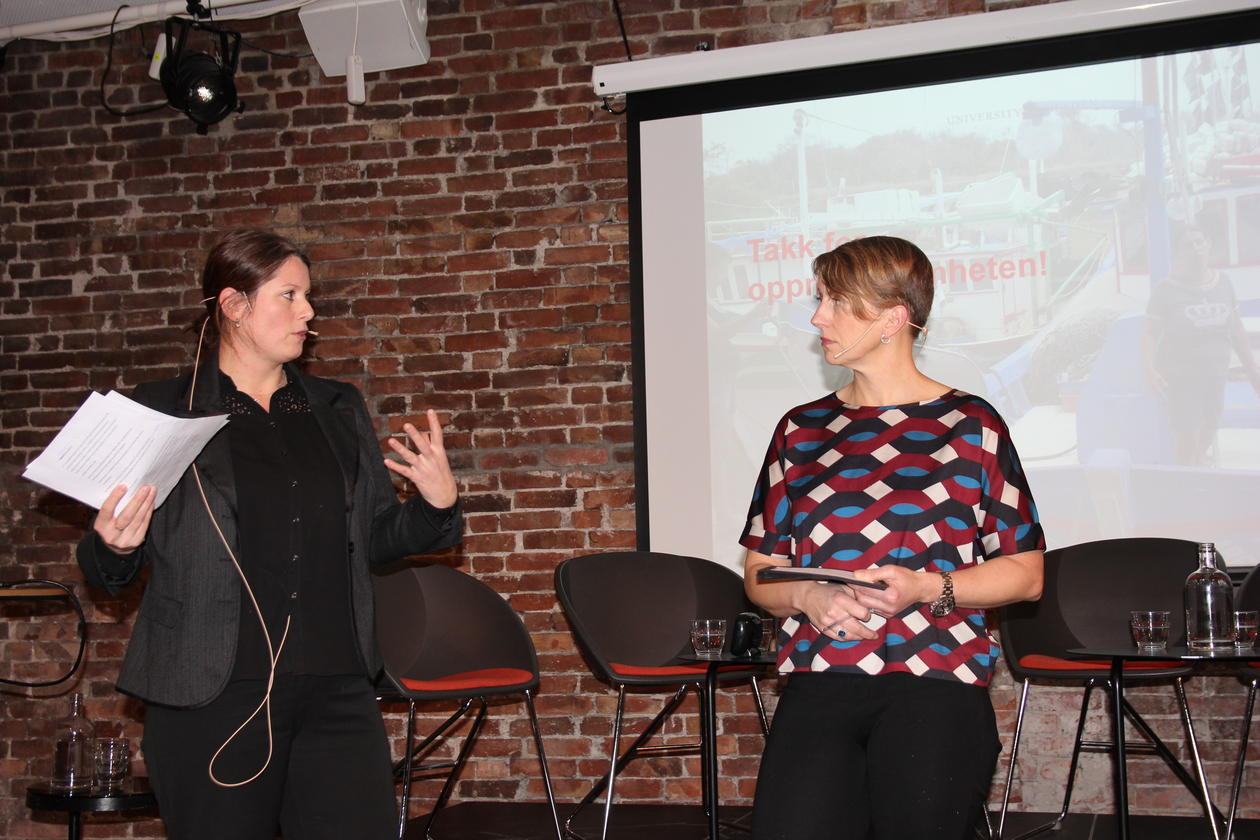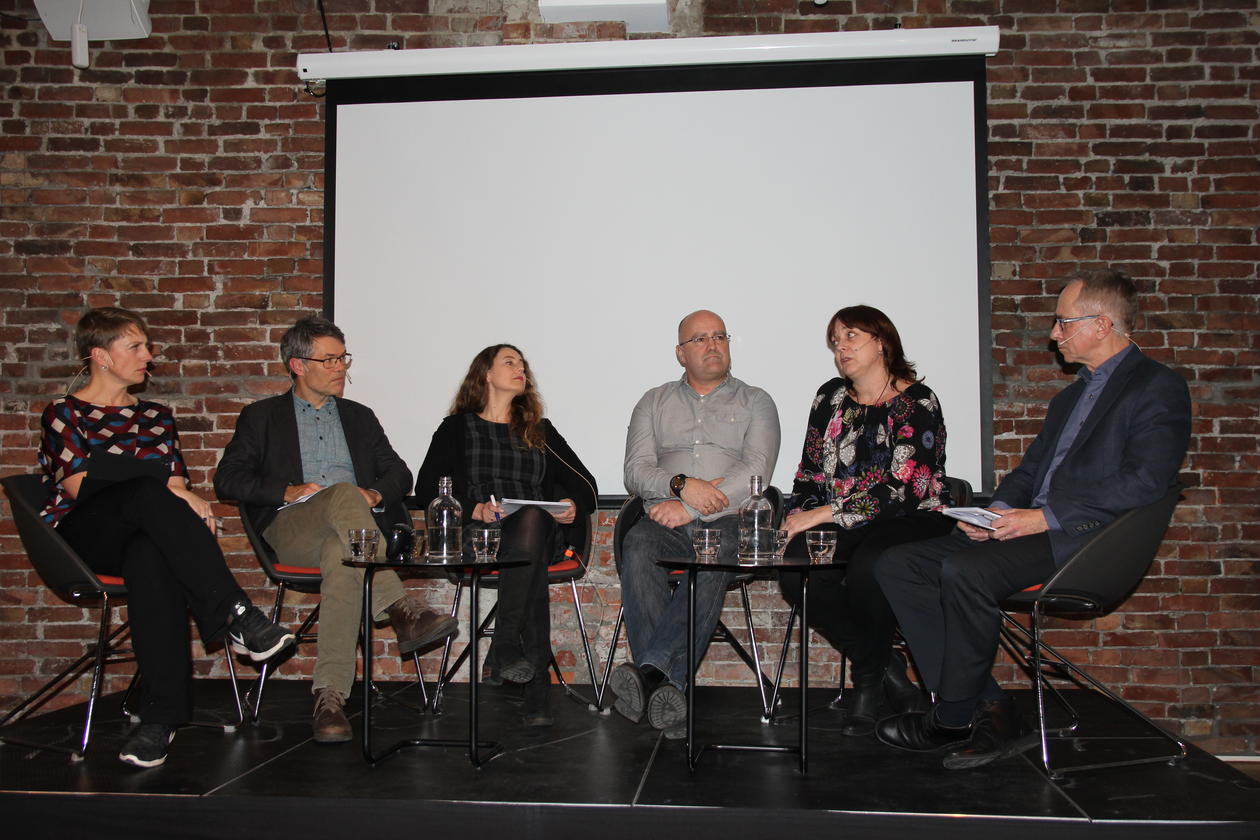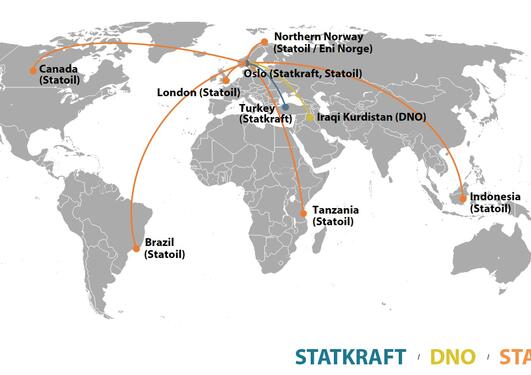How do Norwegian energy companies handle responsibility abroad?
Social anthropologists highlight how Norwegian energy companies handle their responsibility abroad.

Main content
For the last four years, the Energethics group has done research on Norwegian business ethics aborad. This week, they appeared in debates at Litteraturhuset in Bergen and Oslo where the researchers also presented their project finings.
"We have not assesed whether Statkraft, Equinor and Det Norske Oljeselskap are good or not at taking responsibility. Rather, we are interested in how businesses handle their responsibility at different levels within the company, and in interaction with the environment and people surrounding them. We have also analysed how this has changed over time," project leader and Professor Ståle Knudsen claimed.
Statkraft in Turkey
Together with Ingrid B. Müftüoglu, Knudsen has done fieldwork among people within and outside Statkraft; at the headquarters in Lysaker, the country office in Istanbul, and in local communities surrounding Statkrafts projects in Turkey. They have also followed Statkraft's external reporting from Turkey to Lysaker.
"The term stakeholders is frequently used in Statkraft. This thorough use of stakeholders gives an impression that work on responsibility is holistic, coordinated and interconnected. This contributes to a unified story about responsibility. In practice however, work on responsibility is not as standardised as it appears from the outside," Knudsen pointed out.
Exporting Norwegian experiences?
What inspired the Energethics project was a curiosity about whether Norwegian companies handle their responsibility different compared to other transnational companies. However, the "Norwegian way" is not necessarily the good way. The intention was to explore whether or not they exported their Norwegian experiences to their foreign investments. This was also investigated by looking at the degree of state ownership. Statkraft is fully state owned, Equinor is 67% state owned, and Det Norske Oljeselskap is privately owned.
Professor Siri Lange's fieldwork on Equinor in Tanzania is a good example of what is particular about Norwegian transnational companies. Equinor actively supported work with Tanzanian labour unions. Despite that Equinor did everything "by book", Tanzania is not mature for tripartite cooperation between state, business and labour unions, argued Lange.
Compared to other foreign companies operating in Brazil, Equinor is the company that to the largest degree follows the authorities' requirements. Simultaneously however, Equinor does not strech any further beyond what is required, claimed Iselin Åsedotter Strønen.
Responsible businesses?
Representatives from Equinor, Greenpeace Norway, OECDs Contact Point for Responsible Business Conduct, the Rafto Foundation, and a previous leader for the coordinating unit at the Ministry of Foreign Affairs of National Action Plan on UN Guidelines for Business and Human Rights, participated in the debates in Bergen and Oslo, together with project leader Knudsen.
Among other themes discussed in the debate was how responsible Norwegian businesses are. According to the Leader for Norway's OECD Contact Pont for Responsible Business Conduct, Frode Elgesem, there is room for improvement. "Most businesses have a long way to go". He referred to Strønen's presentation and said that "the voluntary aspect is good, but significant changes emerge when responsibility is required by law".
The Leader for Sustainable Finance in Greenpeace Norway, Martin Norman, was not pleased with Equinor's recent dialogue with stakeholders in the Great Australian Bight. "Equinor adheres to frameworks that authorities impose, but they do not make an effort to take responsibility beyond such requirements," he claimed. Yet, he beileved that Equinor has become better in their work on responsibility.
As to meet the critique by Norman, Sustainability Advisor in Equinor, Morten Mikkelsen pointed that the company has been more open and has been reaching out to a larger degree than other companies.
Therese Jebsen, Senior Advisor and Leader for the Rafto Foundation's Business and Human Rights Program emphasised that businesses acknowledge ethical challenges to a larger degree now than before.
Ståle Knudsen explained that there have been developments in the responsibility term over time. The term samfunnsansvar (corporate social responsibility) has moved away from philanthropy to becoming integrated in the entire corporation. He examplified that the most recent White Paper on Ownership had changed from using the term samfunnsansvar to sustainable value-creation.
Cathrine Halsaa, Head of Secretariat for OECD Contact Point for Responsible Business was pleased with the rethorical change to international terminology where "responsible business conduct" is central. She believed that it was easier for businesses to operate according to a common understanding of the responsibility term. Both Halsaa and Elgesem agreed that the White Paper signaled that operating profitably over time requires that companies act responsibly".
Knudsen on the other hand argued that the rethorical shift comes with a range of challenges. "The White Paper does not touch upon tensions and dilemmas between sustainability and value-creation, and how companies should balance these".
